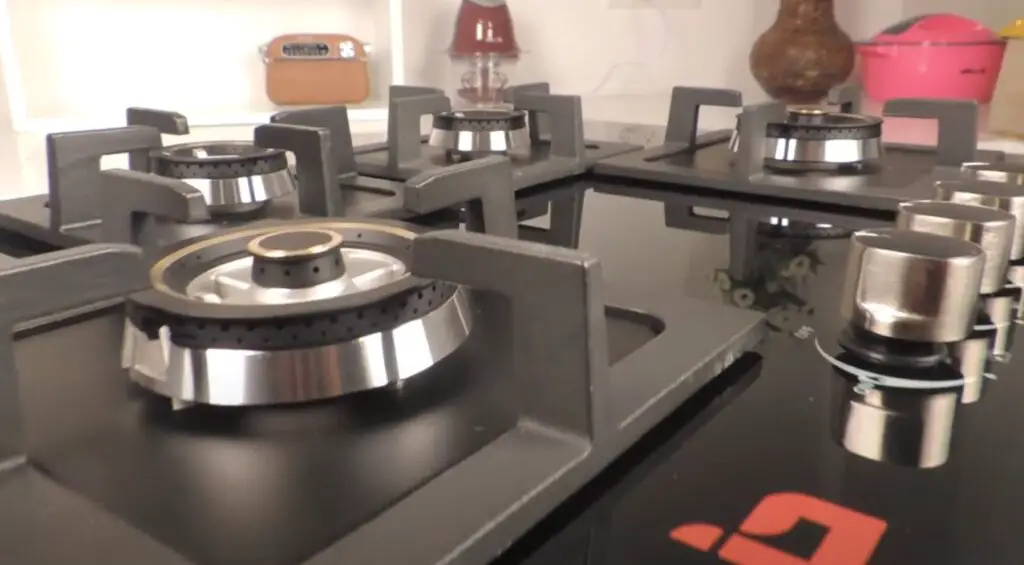
 Save Upto $850 ›
Save Upto $850 ›
A gas stove is a typical item in most homes, yet many people are afraid that they are one mistake away from an explosion. While they may have a valid argument, it is highly unusual for this to occur.
Gas stoves are typically safe equipment, but understanding what may cause them to explode is essential for anybody who owns one. So, today, we’ll address the issue, “What causes a gas stove to explode?”
In this post, we’ll look at some of the most typical causes of a gas stove explosion and offer advice on how to avoid one.
Before going any further, it’s worth noting that modern gas appliance explosions are becoming increasingly rare, owing to these sophisticated safety features:
Any natural gas leak has the potential to be a threat. If your natural gas is leaking, it is quite likely that it may catch fire and produce an explosion. If you suspect a gas leak, leave the area immediately and contact 911.
Explosions are easily caused by improper or inadequate venting. It is critical that venting reaches the proper height and is not obstructed by things in and around your kitchen or cooking area, such as a refrigerator.
Gas burners must be inspected for signs of wear, corrosion, or other problems that might cause leaks and, in turn, an explosion.
If you have recently installed a new stove, ensure sure it is properly fitted and in accordance with safety requirements before putting it to use. Installing a gas stove too close to an open window or door is not a good idea.
This might range from dust and paint to grease that has accumulated over time, so make sure you clean your appliance on a regular basis.
If the gas line is not properly connected or is broken, it might lead to a buildup of pressure, which can result in an explosion.
When an equipment, such as a stove, overheats, gas might escape and cause your range to explode.
Explosions caused by gas stoves are readily preventable. Here are some precautions you may take to avoid gas stove explosions:
Make certain that the stove you purchase includes the following features:
Gas shut-off valves are classified into two types: manual shut-off valves and automated shut-off valves.
Automatic gas shutdown valves may be turned on remotely, which can be very useful in particular situations, but they are also more expensive than manual ones.
Gas shut-off valves are used to halt the flow of gas in a structure. They are usually seen near the gas lines that bring gas into the house.
Automatic gas cutoff valves will switch off the gas supply if the shaking at a certain place is greater than the valve’s tolerance. Automatic shutoffs can help avoid fires caused by leaking gas during earthquakes.
Tip-over prevention is a safety feature that protects a gas stove from overturning.
This safety device prevents the stove from being pushed over while cooking, which might cause the stove to ignite and explode.
Tip-over safety is especially vital for youngsters and the elderly, who may be unable to rescue themselves if they unintentionally knock the stove over.
A gas stove’s flame failure device is intended to cut off the gas supply in the case of unstable or missing flames. It is programmed to turn off automatically when no flames are detected for a set length of time, avoiding gas leakage.
When the flame goes out, the auto reigniting mechanism immediately reignites it, eliminating gas buildup.

Gas stove explosions are uncommon, but they do happen. According to a 2018 research by The National Fire Protection Association (NFPA),
an estimated 4,200 house fires per year are started by the igniting of natural gas.
According to the research, they cause an average of 40 fatalities every year.
However, gas leaks are rather common, with local fire departments in the United States responding to an average of 340 natural gas or Liquified Petroleum Gas leaks each day with no ignition, according to the research.
If your gas stove explodes for any reason, evacuate the area immediately and contact 911. Make careful to notify everyone in the area so that they may also escape to a safe distance.
It depends on what caused the explosion in the first place, but gas stove explosions may be fairly large and extremely lethal.
Natural gas is only explosive when blended with air at a concentration of 5 to 15%. It may be a major concern if it seeps into an enclosed place, such as a basement. Leaks that make their way into sewer pipes can also be dangerous. Sewer cameras can help with finding clogs and fixing them.
50,000 ppm (5 percent in air) concentrations are deemed immediately threatening to life and death.
The most common explosive gases in domestic mishaps are those used for heating or cooking, such as natural gas, methane, propane, and butane.
There were 12 deaths and ten injuries recorded from natural gas pipelines in the United States from 2015 to 2017. Pipeline explosions cost millions of dollars in property damage and evacuations.
It is critical to maintain your appliance by learning what may cause it to fail and how to prevent this from happening.
In general, it is critical to inspect your gas stove for any of these possible causes and correct them as needed.
If you don’t want to handle the appliance alone, you should get an expert to inspect your stove for any potential concerns.
If you suspect a problem with your gas range, call an appliance repair specialist or the company that installed it.